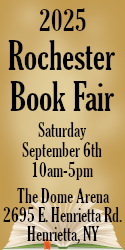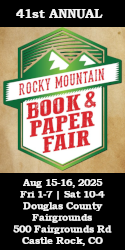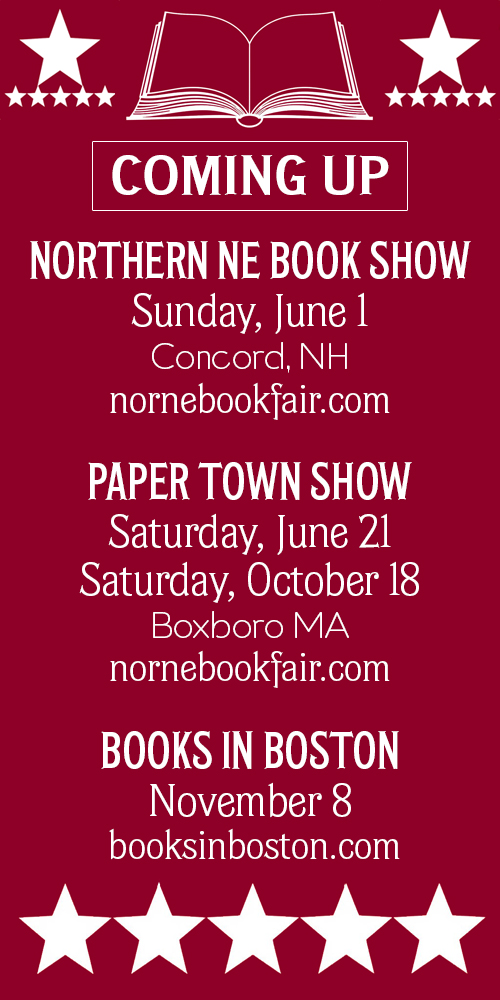Living in Interesting Times
The story you may have seen in the New York Times this past August about the theft of musical manuscripts from Israel’s national library had its beginnings when Jude and John Lubrano (J & J Lubrano Music Antiquarians) were researching some material they had purchased on eBay from Meir Bizanski, a Haifa architect.
One of the four manuscripts they purchased from Mr. Bizanski was Arthur Honegger’s unpublished “Arioso” for violin and piano which carried a personal inscription to a Paris photographer by the name of Lipnitzki. The Lubranos have a large collection of reference books (remember those?) and in Geoffrey Spratt’s The Music of Arthur Honegger (Dublin, 1987) they found an exact citation for one of the pieces, including a transcription of the inscription to Lipnitzki. Furthermore, a location symbol indicated it was owned by what is now Israel’s national library.
In a phone call to Gila Flam, director of the music section, Jude learned that the manuscript was indeed part of their collection, was missing from the proper folder, and had never been sold. Further investigation revealed that hundreds of other letters, manuscripts and photographs were also missing. It turns out that other Israeli institutions had been similarly looted and, according to Micky Rosenfeld, National Police spokesman, a police raid on Mr. Bizanski’s home turned up hundreds of missing items that were arranged on shelves and in boxes in a building behind his residence.
Before the police entered the picture the Lubranos contacted Mr. Bizanski and told him what their research had shown—that the manuscripts were listed as being the property of Israel’s national library. Without making any direct accusation and allowing that Mr. Bizanski may have been a victim himself, the Lubranos said they would be returning the manuscripts directly to the library. Fortunately they were able to get their money refunded before police and lawyers became involved, otherwise everything could have been held as evidence for an indeterminate period.
According to other reports eBay is cooperating with the investigation, but the immensity of the online auction world makes it increasingly difficult to vet unknown sellers who are not regular members of the trade. One thing about truisms is that most of them tend to be true.
Lately I’ve been reading Books (New York, Simon & Schuster, 2008), Larry McMurtry’s recent memoir of his other life as an antiquarian bookseller. Although only 259 pages long, made even shorter by 109 chapters, some less than a page (resulting in a few blank reverses), I’m reminded, to make a lame analogy, that one doesn’t buy poetry by the pound.
Of the events of his childhood in West Texas, Mr. McMurtry makes special mention of the time a cousin, who had just enlisted in the military, gave him a box of 19 books. Memories of childhood tend to be disjointed and selective, but those 19 books helped set the course for the rest of his life. As a writer, Larry McMurtry has had a career and a half, as an antiquarian bookseller another career and a half—and just thinking about it makes me feel like a slug.
Some booksellers’ memoirs are like an extended bragging exercise—years ago I read Charlie Everitt’s The Adventures of a Treasure Hunter (Boston, 1951), learned about all the sleepers he discovered in junk shops that turned out to be wonderful buys, but very little of the day-to-day realities of trying to make a living in the antiquarian book trade.
Larry McMurtry has been buying and selling books since he was barely out of his teens (if not before), has had more than his share of success in the business, but is not too proud to tell stories about the books that either got away or were sold for far less than they should have.
I myself, for example, once sold a book worth several thousand dollars for $45 to a next-door dealer... It was “Les Jeux de la poupée, the famous tortured-doll book done by the Belgian surrealist Hans Bellmer, which I foolishly took for a mere exhibition catalogue. It was in part of a collection of several thousand exhibition catalogues we had purchased... I had grown bored with pricing (them) and yet, when I picked up the Bellmer, I had a vague feeling this was something different. How many times do you see exhibitions of dolls wrapped in barbed wire?
I set the item aside for more mature consideration, but I never gave it more mature consideration. Instead I sold it to the handiest willing dealer for $45 less 20 percent. The dealer, who had a shop across the street, boldly priced it at $120—a Boston dealer grabbed it, and when next heard of, it was on sale for $5,000. An inscribed copy is in the auction rooms now: estimate $60,000 to $80,000.
I don’t really regret that error. No dealer can know everything, and when a shop such as Booked Up yields a great sleeper, the word gets out and the scouts and dealers come running. They won’t find anything on the order of the Bellmer, but they will buy something anyway.
Before opening Booked Up (with his partner Marcia Carter) in the Georgetown section of Washington, DC in the early ‘70s, McMurtry taught English, worked as a book reviewer, scouted for books and began his own writing career. In making the move from book scout to bookseller, he launched the Georgetown bookstore in a metropolitan area at a time when large urban bookstores began their long decline.
The 1970s—decade of the Lowdermilks sale—was part of the sad era that saw the closing of downtown urban bookshops in many American cities. The great dinosaurs began to disappear: Leary’s in Philadelphia, Lowdermilks in Washington, Goodspeed’s on Milk Street in Boston, Dauber & Pine and various others in New York City, Acres of Books in Cincinnati, and a little later, the Holmes Book Company in Oakland... What these closings revealed was no secret to anyone in the trade: secondhand books can’t keep up with downtown real estate values...
In many respects Larry McMurtry’s approach to antiquarian bookselling is much like that of Paul Minet—books are important both for their form and their content, one can’t have too many, and both men have very large bookshops to prove it. “I never wanted to be without books I wanted to read, and if I could be reading four or five books at the same time, so much the better. With books pouring into the shop almost daily, this was not a hard thing to achieve.”
Before rising rents drove Booked Up out of Georgetown, McMurtry began acquiring all or part of the stocks of entire bookshops, anticipating the eventual move to Archer City, Texas. Archer City was to have been a book town, but west Texas not being Hay-on-Wye, other than Three Dog Books the location was a hard sell. Nonetheless, along with Hobart in the Catskills, it remains the closest thing to a real book town in North America.
George D. Smith, who reportedly never read a book in his life, made his fortune selling rare books to wealthy customers who probably read even less. I’ve read far too much of this sort of thing which is why McMurtry’s memoir is a breath of fresh air—his personal reading preferences have leaned towards history and travel writing, especially women travellers, and lately have included diaries and memoirs, including the twelve volume diary of James Lees-Milne, which he has read through more than once. About his reading McMurtry has this to say:
During the nine dark years when I didn’t like my own writing, a tension developed between writing and reading that has not abated to this day, and this despite the fact that the two activities ought to be complementary...when I’m writing I often spin out my daily pages as rapidly as possible, in order to get back to whatever I’m reading. It may be that a little frisson between reading and writing is not a bad thing. Mostly the reading fertilizes the writing...(and) is the aquifer that drips, spongelike, into my fiction..
I’ve read only one other bookseller’s memoir more than once—I think this will be the second.
As I’m writing this the financial markets are in a bit of an uproar over the inability of Congress to properly sort out the banking meltdown that Griffin, Phillips and others have been writing and warning about for years. There was one politician who attempted to discuss the problem during his failed bid for the presidential nomination, but people generally yawned, rolled their eyes, and paid no attention to what he had to say. A lot of those same eyes now look like they belong to startled deer caught in the headlights of an oncoming convoy of eighteen wheelers. The good news is that people who have been reading, paying attention and positioning themselves should make it through these interesting times in relatively good shape.
Our non-American readers in the UK and elsewhere have been largely spared having to watch our extended reality t.v. series known as the presidential election campaign. The television news people, in spite of disclaimers to the contrary, have essentially joined talk radio in making their political preferences known, albeit in a more subtle way. Since I don’t have a big dog in this fight and am supporting a candidate from one of the parties effectively excluded from the national debate, I’m reminded of what Jerry Garcia once said—“constantly choosing between the lesser of two evils is still choosing evil”. This may be a good time to consider that thought.
A Shameless Plug
If you use a computer, don’t have your own website and use one of the standard default home pages for going to the Internet (Microsoft, Dell, Google, Yahoo, etc.), consider making www.booksourcemagazine.com your new home page.
In addition to being able to read much of the content of this magazine on our website (columns, news articles and events calendars), there is free access to our archives as well as links to all sorts of other book-related and general information sources. These include the Library of Congress, the British Library, the Morgan Library, major book auction houses, prominent booksellers, access to trade associations such as the ABAA and ABA, and important alternative news and opinion sources such as the Christian Science Monitor and others. Besides having direct access to Biblio, the premier searchable database for out-of-print, antiquarian and rare books, you can also connect to “Booksellers’ Gulch,” (where the modern equivalent of Manhattan’s “Book Row” is being constructed on the Internet).
If you’re not sure how to change your home page, just go to www.booksourcemagazine.com, click on “tools” at the top of your browser page, select “Internet options” and then on the “home page” option on the “general tab” click on “use current”. This should do the trick—if you’re using anything other than Internet Explorer, follow your intuition or call a computer-savvy friend.


























